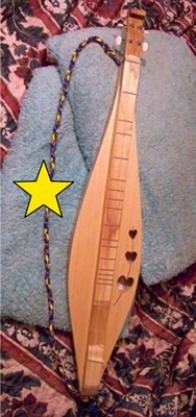Cleaning An Older Instrument
Thought I'd break this out as methods and products might be different for some cleaning jobs. I'm thinking here, primarily of that old dulcimer you found in the attic, barn, yard sale, ebay etc. There may be years of grime build up that needs to be dealt with a little more aggressively than wiping down the dulcimer you have neatly packed in your clean, padded well tended case.
I would also caution that unless you are knowledgeable, extreme cleaning may actually devalue your found treasure. There are dulcimers out there that are valuable. It would be a shame to damage one through too much cleaning or use of a product that would alter the wood or finish.
I've been reading a little about products and looked up another that I will try on an old dulcimer I bought locally. Here is a link to the manufacturer's site:
http://www.scottsliquidgold.com/scotts-liquid-gold/
I've used this on wood before with really good results. I've never used it on ANY musical instrument. I have a worthless, plywood dulcimer that has been chopped on, painted (fretboard), and some of the glue joints needed repair. I repaired with a two part epoxy that will not come loose ... ever. What I have planned is to use the Scott's (when I find some), and start by cleaning a small place somewhere inconspicuous on the dulcimer. A good practice here is to apply a little product, let it sit, then wipe with a soft clean cloth. If nothing happens ... more product, leave it a little longer and rub it off a little more vigorously. You might be surprised at how much of the finish is really still there and can be restored somewhat by careful, thorough cleaning. (Speaking in general terms, as I said, I haven't used this product or method on any musical instrument).
This is something that may be best done in stages, stopping frequently to view the results, letting your work air dry and inspecting the progress. Is it better? If so go on. If you've only done a little, in an out of the way place and it is too harsh or you don't like the results ... stop!
In some cases you may be able to remove years of fly specs, built up dirt and dust, rust from the tuners (if mechanical) clean the frets and replace dilapidated strings.
If you have already done a similar cleaning project, your input would really be appreciated. Good 'what NOT to do' advice can be invaluable.

